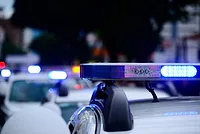Mall Sued for Lax Security After Mass Shooting
A federal trial court held that a mall premises owner might be liable for failing to prevent the shooting of a store manager who was shot several times by an assailant. The mall owner failed to implement security measures that might have prevented the shooter from continuing his rampage against individuals located inside the mall.
On Nov. 20, 2005, Dominick Maldonado walked into a mall wearing a trench coat under which he was concealing a rifle and a pistol. Maldonado also carried a guitar case containing ammunition. Prior to entering the mall, Maldonado made a phone call to 911 informing the operator that he was carrying two weapons and that he was going to begin shooting.
After entering the mall, Maldonado stopped by a soda machine to load his rifle, passed by a mall kiosk several times and then began shooting. In approximately eight minutes, Maldonado shot seven people. Maldonado took four people hostage for several hours before he was eventually taken into police custody.
The last person Maldonado shot was Brendan McKown, an assistant manager at a store in the mall. When the shooting began, McKown was taking store deposits to a bank deposit box located at the opposite end of the mall from his store when he heard sounds that he recognized as gunshots. After several minutes of not hearing any additional gunshots, McKown stood near the entrance to a camera store when Maldonado walked by and shot him several times.
McKown filed a lawsuit against the mall premises owner alleging the owner failed to provide sufficient security measures which could have better protected the individuals faced with an emergency situation such as the shooting. The mall owner filed a motion for summary judgment arguing the shooting was not foreseeable and McKown's injuries were not preventable under the circumstances.
McKown argued that the mall owner should be held liable for failing to take even the most basic, reasonable steps to protect him and others from danger. McKown presented evidence that the mall had only three unarmed security officers on the premises the day of the shooting; that the mall failed to properly track and assess past crimes; that the mall failed to have an audible announcement system; and that the mall failed to coordinate with police to prevent attacks and failed to hire off-duty, armed police officers to provide security.
The mall owner argued that Maldonado's actions in shooting at strangers in the mall were not reasonably foreseeable as a matter of law and, therefore, the mall owner had no duty to prevent Maldonado from shooting McKown.
The district court concluded that based on the evidence, a reasonable jury could find that McKown's injuries were the result of reasonably foreseeable criminal conduct and that a reasonable jury could find that the mall owner's failure to implement certain security measures was the cause in fact of McKown's injuries. Accordingly, the court denied the mall owner's motion for summary judgment.
Looking for a reprint of this article?
From high-res PDFs to custom plaques, order your copy today!





